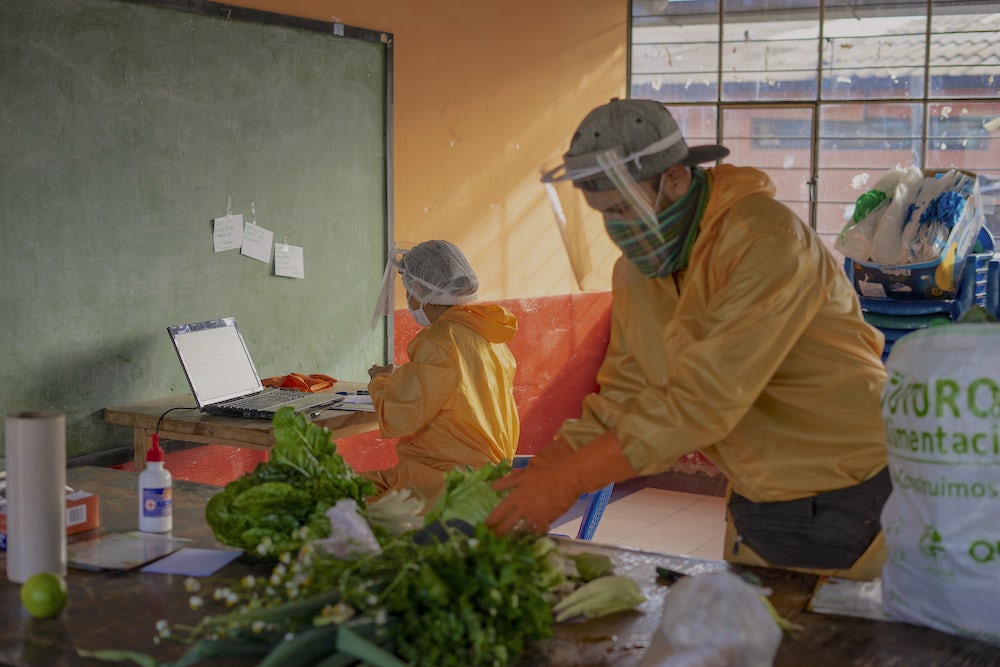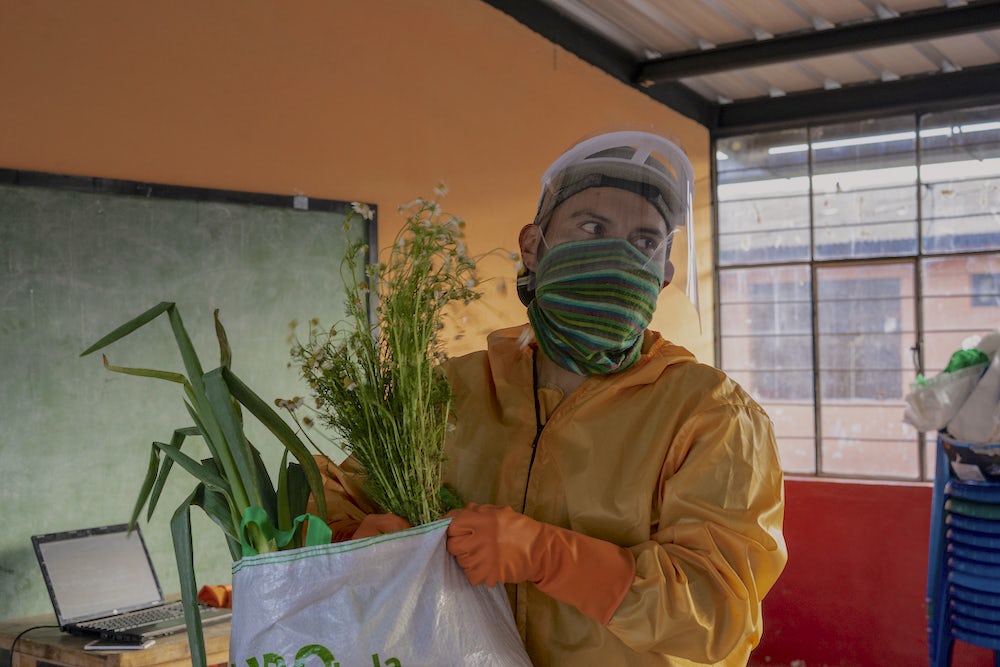In rural communities outside Ecuador’s bustling capital, Quito, farmers groups have been working diligently, harvesting fresh fruit and vegetables and transporting the crops to collection centers to be packaged and distributed to homes throughout the city.
“We are quite busy, working around the clock, preparing baskets filled with produce that will be delivered to people’s homes, and it’s a hard task," said Nelson Pamar, the president of Pamar Chacrin, one of the farmers groups working with Heifer International through its Future of Food program. "We help farmers sell their produce and we help supply the city with produce.”

This work was launched in Ecuador in 2019 — well before the COVID-19 pandemic — to expand access to nutritious, sustainably grown food while supporting small-scale farmers to connect to urban markets.
This visionary endeavor meant that when millions of Ecuadorians found themselves quarantined at home last year, farmers could respond quickly to the increased demand for fresh, local food — an effort that has kept hunger at bay for many people in Quito throughout the pandemic.
In the wake of the COVID-19 crisis, the number of people going to bed without a single meal has grown significantly across the globe. According to The State of Food Security and Nutrition in the World 2021, economic declines, including those driven by COVID-19 regulations, have contributed to one of the largest increases in global hunger in decades, with as many as 811 million people experiencing hunger last year. This figure represents an increase of up to 161 million people over the previous year, with some of the most severe increases occurring in Latin America and the Caribbean.

The goal of the Future of Food program was always to improve the lives and livelihoods of small-scale farming families in Ecuador, where many farmers earn well below the living income, or the amount of money each person in a household needs per day to live a dignified life.
Now, it has also become a case study in how to ensure markets remain functional and adequate food remains available in the face of unpredictable circumstances.
To end world hunger, the report calls in part for food systems that are affordable and inclusive and acknowledges the Future of Food program’s contribution to “creating new and innovative linkages between urban dwellers and rural food producers” in Ecuador. These connections have strengthened supply chains, preserved access to vital nutrition and maintained income-earning potential for farmers who need it, all of which are critical to overcoming hunger during unstable economic times and beyond.
